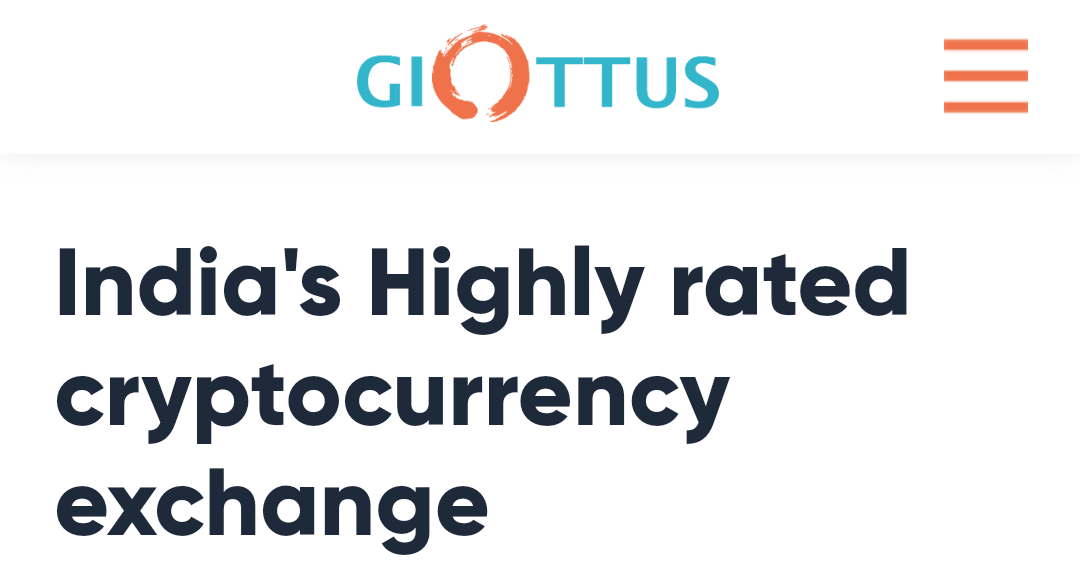Giottus is founded by Vikram Subburaj and Arjun Vijay in 2017 which is Chennai-based crypto trading startup.
A Chennai-based crypto exchanging startup Launched by two previous consumer tech chiefs is betting on a solid customer care system to drive the reception of virtual currencies in India.
Indeed, even as the unpredictable and decentralized nature of virtual currencies prodded requires their guideline and even cover boycotts in India and abroad, IIM Calcutta graduated alumni Vikram Subburaj and Arjun Vijay set up Giottus Inc. in 2017 with the point of making digital currency exchanging straightforward and reliable.
The co-founders clarify they focused on safety efforts, bringing more straightforwardness, and offering an exceptionally responsive client service system. Basically, Giottus enabled most customers to store their digital currency relying on their necessities and prerequisites.
All About Giottus
The two-year-old platform of crypto currency at present permits customers to exchange in excess of 100 computerized money sets threely: open request book spot trade, peer-to-peer (P2P) trade, and straightforward purchase and sell.
In this strategy, investors move INR from their financial balance to that of Giottus and purchase cryptocurrencies inside a moment. In on the spot trade, merchants trade cryptocurrencies in a split second. Goittus says its “exclusive requesting coordinating motor” empowers customer requests to be “coordinated right away”. It likewise claims to be an innovator in Indian rupee (INR) sets with “perhaps the most fluid request books in the country”.
Read also Top Travel Startups in India
A majority share of Giottus’ customers, are retail consumers, who are charged 0.25 percent for a buy and 0.15 percent for a deal. The stage likewise gives wallet administrations, wherein customers can store, hold, and pull out virtual currencies. “According to Vikram.
For the P2P exchange, Goittus goes probably as an escrow for computerized currencies allowing INR to be moved direct between shippers. This strategy, the stage says, is favored by the individuals who exchange huge volumes.
Holding and deposite of cryptocurrencies is free, while withdrawals attract a fixed fee that is different for each currency. This wallet Services is an extra part of the cold wallet. The group wouldn’t share the fixed charge.
Giottus claims it has exchanged volumes of over $100 million and has a customer base of more than 100,000. The co-author says the startup has prepared in excess of 3,000,000 exchange demands and 600,000 or more exchanges.
It also gloats of an edge of 55 percent, which is required to rise further with expanding volumes. Vikram clarifies that as the cost of gradual requests for a trade is very low, developing volumes lead to high edges.
Giottus Referral Program
Giottus also has a referral program. Through the program, you can welcome your companions to begin an account at the trade. On the off chance that they acknowledge, and do begin such an account, you will get a prize from the trade.

This prize will be given to you in MATIC-tokens. You will get 100% of your invitee’s exchanging expenses during the primary seven day stretch of exchanging, 90% during week 2, 80% during week 3, 70% during week 4 and 60% forever from that point. An interesting structure as we would see it.
Pivot in front of challenge
In April 2018, regulator Reserve Bank of India’s (RBI) round banning banks from working with cryptocurrency exchanging stages nixed Giottus’ arrangement to dispatch as an open request book spot trade.
Therefore, most crypto cash stages and trades needed to either change activities or shut down. RBI boycott separated, Giottus was competing with trades, for example, ZebPay, Unocoin, and Koinex that had just accomplished scale.
This too drove the stage to make the rotate to a P2P trade. In actuality, it claims it turned into India’s first completely KYC (know your customer)- enabled P2P trade.
“Most aren’t that centered around P2P trades. As a P2P trade, Giottus united believed peers on its foundation for preparing INR store and withdrawals, a training that turned into the cryptocurrency business standard until the country’s top court subdued RBI’s round in March this year,”

